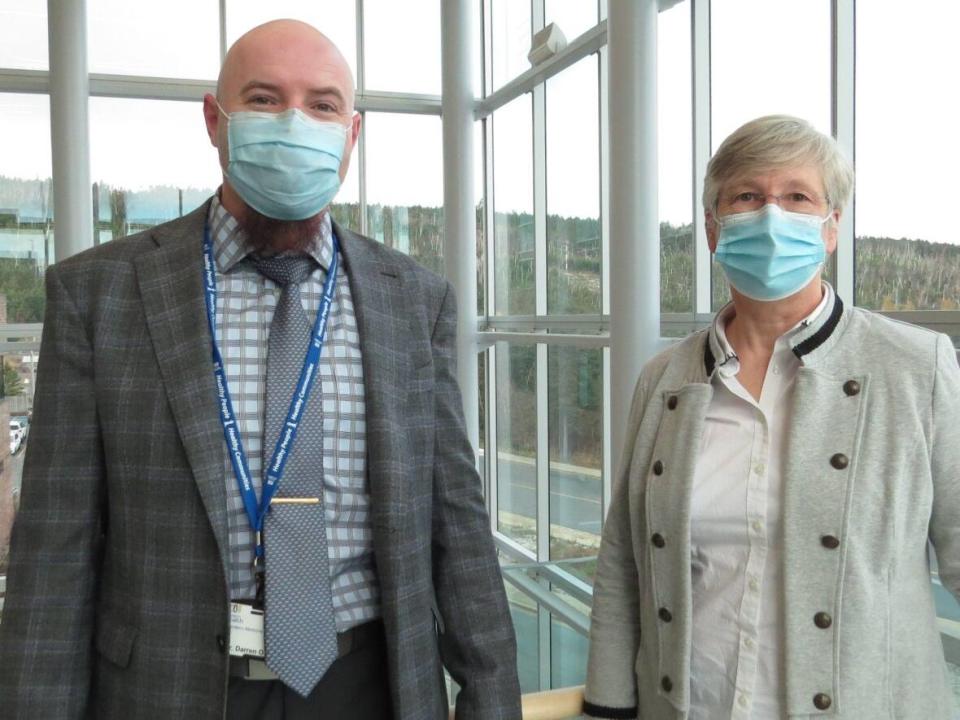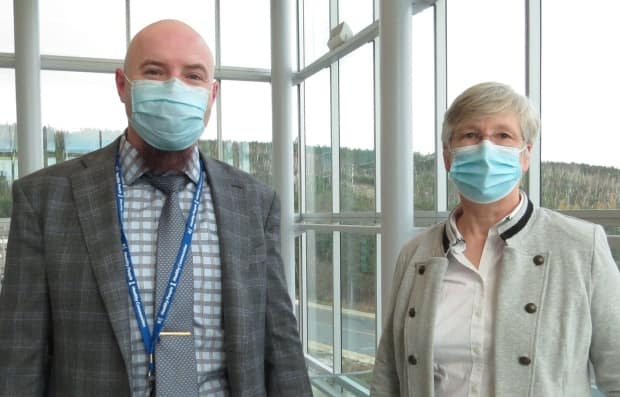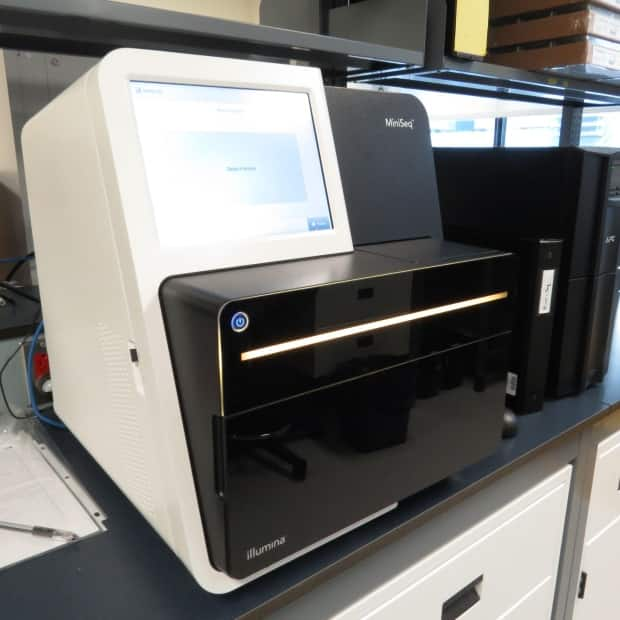How a homegrown lab will make it easier to dip into N.L.'s gene pool


When genetic samples are taken in Newfoundland and Labrador, they need to be sent to the United States.
That's about to change, because the Centre for Translational Genomics will soon be up and running at Memorial University's medical school in St. John's.
Its aim: to become a one-stop-shop for genetic research in Newfoundland and Labrador by offering clinical and research services.
Co-project lead Terry-Lynn Young, PhD, said they had the idea for the centre about a decade ago.
"Recognizing how important it was that research and diagnostic work together because we're both working on the founder population. And it was a way to be able to quickly translate research findings that had critical diagnostic potential for families," she said in an interview.
Newfoundland has what's called a "founder population," where most people can trace their origin back to England and Ireland. It makes fertile ground for genetic research into rare diseases that are more abundant on the island than in other places.
"The more testing we do here, the more data we will have in terms of examining new potential variances that might impact the health of our population," Young said, "while we also get to hire people, employ people, reap the benefits of doing that research here.
"And for all the genetics research that's going on we can, if something comes up like the sudden cardiac death gene or hearing loss gene that we've just discovered, it will take way less time now for us to be able to offer a genetic test."

The centre's director, Darren O'Rielly, PhD, said that when they have to ship things out to another facility across the border, it's slotted into the other lab's schedule.
"The added flexibility is going to allow us to hopefully have better health outcomes through genomics," he said.
Moreover, Young said, if the pandemic has taught us anything, it's that if we can do things locally, we should.
She said the centre will have a real impact on people's lives; if someone has a heart condition in their family and a few years down the road they get breast cancer, she said, the centre will already have sequenced their genome.
Peeling back the layers of a person's life
"So we can peel back the layers as there's clinical questions arising in the life of that person."
The Centre for Translational Genomics is housed in the Craig L. Dobbin Genetics Research Centre on the upper floors of Memorial University's medical school. It's a joint initiative between the medical school and Eastern Health.
"When we're fully operational we'll have the capacity and robustness to be able to adapt quickly to meet the demands of our population," said O'Rielly.
"Whether that be, for example, the COVID testing by working with the public health lab, or whether it be some other pandemic issue that rises up, we have that infrastructure that we don't have to say, 'Where are we going to send this?' We can do it here."

O'Rielly said the centre will store genetic data that can be reused for multiple purposes, including re-examining the same patient or for future research, including engagement with companies looking to access genetic data for research.
The centre officially opened in May, though O'Rielly said the pandemic delayed hiring, getting equipment and training staff.
"In January we're going to be, knock on wood, well positioned to move forward very quickly," he said. The centre's in Phase 1 and focused on looking at hereditary diseases, whereas Phase 2 will focus more on sporadic diseases, like cancers, he added.
They've hired two genomic technologists, one clinical genomic scientist, one research assistant, one business/marketing manager and one bioinformatics assistant position, he said, and they will be hiring a genetic counsellor in the future. The centre also shares staff with Eastern Health.
In time, Young said, they will build that team as the centre scales up.

 Yahoo Finance
Yahoo Finance 